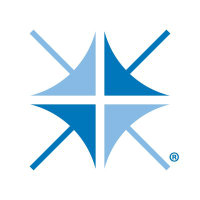
Theravance Biopharma Inc
NASDAQ:TBPH


| US |

|
Johnson & Johnson
NYSE:JNJ
|
Pharmaceuticals
|
| US |

|
Berkshire Hathaway Inc
NYSE:BRK.A
|
Financial Services
|
| US |

|
Bank of America Corp
NYSE:BAC
|
Banking
|
| US |

|
Mastercard Inc
NYSE:MA
|
Technology
|
| US |

|
UnitedHealth Group Inc
NYSE:UNH
|
Health Care
|
| US |

|
Exxon Mobil Corp
NYSE:XOM
|
Energy
|
| US |

|
Pfizer Inc
NYSE:PFE
|
Pharmaceuticals
|
| US |

|
Palantir Technologies Inc
NYSE:PLTR
|
Technology
|
| US |

|
Nike Inc
NYSE:NKE
|
Textiles, Apparel & Luxury Goods
|
| US |

|
Visa Inc
NYSE:V
|
Technology
|
| CN |

|
Alibaba Group Holding Ltd
NYSE:BABA
|
Retail
|
| US |

|
3M Co
NYSE:MMM
|
Industrial Conglomerates
|
| US |

|
JPMorgan Chase & Co
NYSE:JPM
|
Banking
|
| US |

|
Coca-Cola Co
NYSE:KO
|
Beverages
|
| US |

|
Walmart Inc
NYSE:WMT
|
Retail
|
| US |

|
Verizon Communications Inc
NYSE:VZ
|
Telecommunication
|
Utilize notes to systematically review your investment decisions. By reflecting on past outcomes, you can discern effective strategies and identify those that underperformed. This continuous feedback loop enables you to adapt and refine your approach, optimizing for future success.
Each note serves as a learning point, offering insights into your decision-making processes. Over time, you'll accumulate a personalized database of knowledge, enhancing your ability to make informed decisions quickly and effectively.
With a comprehensive record of your investment history at your fingertips, you can compare current opportunities against past experiences. This not only bolsters your confidence but also ensures that each decision is grounded in a well-documented rationale.
Do you really want to delete this note?
This action cannot be undone.

| 52 Week Range |
7.66
11.59
|
| Price Target |
|
We'll email you a reminder when the closing price reaches USD.
Choose the stock you wish to monitor with a price alert.

|
Johnson & Johnson
NYSE:JNJ
|
US |

|
Berkshire Hathaway Inc
NYSE:BRK.A
|
US |

|
Bank of America Corp
NYSE:BAC
|
US |

|
Mastercard Inc
NYSE:MA
|
US |

|
UnitedHealth Group Inc
NYSE:UNH
|
US |

|
Exxon Mobil Corp
NYSE:XOM
|
US |

|
Pfizer Inc
NYSE:PFE
|
US |

|
Palantir Technologies Inc
NYSE:PLTR
|
US |

|
Nike Inc
NYSE:NKE
|
US |

|
Visa Inc
NYSE:V
|
US |

|
Alibaba Group Holding Ltd
NYSE:BABA
|
CN |

|
3M Co
NYSE:MMM
|
US |

|
JPMorgan Chase & Co
NYSE:JPM
|
US |

|
Coca-Cola Co
NYSE:KO
|
US |

|
Walmart Inc
NYSE:WMT
|
US |

|
Verizon Communications Inc
NYSE:VZ
|
US |
This alert will be permanently deleted.
 Theravance Biopharma Inc
Theravance Biopharma Inc
Theravance Biopharma Inc
Investor Relations
Theravance Biopharma, Inc. is a biopharmaceutical company, which engages in the discovery, research, development, and commercialization of respiratory medicines. The company is headquartered in George Town, Grand Cayman and currently employs 158 full-time employees. The company went IPO on 2014-05-16. The firm develops transformational medicines to improve the lives of patients suffering from serious illnesses. The firm's research is focused in the areas of inflammation and immunology. The company applies organ-selective knowledge to biologically compelling targets to discover and develop medicines, which are designed to treat underserved localized diseases and to limit systemic exposure. The firm is developing lung-selective medicines to treat respiratory disease, including YUPELRI (revefenacin) inhalation solution indicated for the maintenance treatment of patients with chronic obstructive pulmonary disease (COPD). Its revefenacin is a long-acting muscarinic antagonist (LAMA). Its programs also include Nezulcitinib, Ampreloxetine (TD-9855), Izencitinib, TD-5202 and TD-8236.

Theravance Biopharma, Inc. is a biopharmaceutical company, which engages in the discovery, research, development, and commercialization of respiratory medicines. The company is headquartered in George Town, Grand Cayman and currently employs 158 full-time employees. The company went IPO on 2014-05-16. The firm develops transformational medicines to improve the lives of patients suffering from serious illnesses. The firm's research is focused in the areas of inflammation and immunology. The company applies organ-selective knowledge to biologically compelling targets to discover and develop medicines, which are designed to treat underserved localized diseases and to limit systemic exposure. The firm is developing lung-selective medicines to treat respiratory disease, including YUPELRI (revefenacin) inhalation solution indicated for the maintenance treatment of patients with chronic obstructive pulmonary disease (COPD). Its revefenacin is a long-acting muscarinic antagonist (LAMA). Its programs also include Nezulcitinib, Ampreloxetine (TD-9855), Izencitinib, TD-5202 and TD-8236.





























 You don't have any saved screeners yet
You don't have any saved screeners yet
